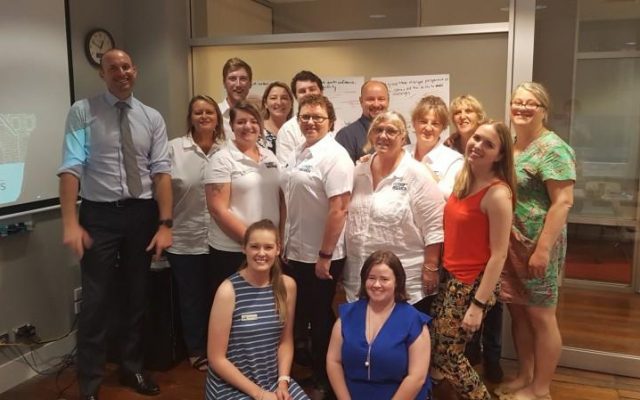
Reflections from the Australian Institute of Management course, ‘Fast Thinking – Confident Speaking’
We support our staff to do professional development that aligns with their interests and professional goals.
Last week, our consultant Greta attended a one-day course, ‘Fast Thinking – Confident Speaking’ by the Australian Institute of Management, and shares some of her reflections.
While I unfortunately did not leave the course with a magic pill that makes me think faster or overcome all my public speaking insecurities, I learned about the value of intentional and human-centred communication.
There are three key steps to fast thinking and confident speaking:
- Get out of your own way. An emotional response to a stressful situation is a normal human reaction. If we create space for authenticity and vulnerability, we become less worried about trying to impress someone. For example, our reaction to a challenging conversation is often inward (‘Oh my goodness, I don’t know what to say. I look like an idiot.’). But instead, if we focus our attention outwardly and on the present moment, we can create space for our thinking brain. A good way to anchor to the present is to focus on our breathing.
- Get curious and learn how to reframe. In conversations, particularly challenging ones, it can be tempting to focus on winning or impressing others. But, if we shift the focus to really listening and being curious, we can focus on mutually beneficial solutions. To do this, ask yourself questions like: ‘What is the one key thing that they want to know? What could their needs and intentions be?’
- Rely on fall back phrases and structural strategies. It’s helpful to have some standard phrases and tactics to buy some time and calm our nerves. These could be as simple as asking someone to repeat or clarify their question, rewording and repeating the question back or asking the other person to narrow the focus of their question. Not only do these strategies give you more time and more clarity, but they also show you’re genuinely interested in providing a useful answer.
A key takeaway for me was the focus on listening to and caring about what others have to say, and what their intentions and needs are, rather than trying to impress them with our words. As evaluators, I believe embracing the art of listening empowers us to do more meaningful, impactful, and ethically sound evaluations that serve the diverse needs of the communities and organisations we aim to support.




